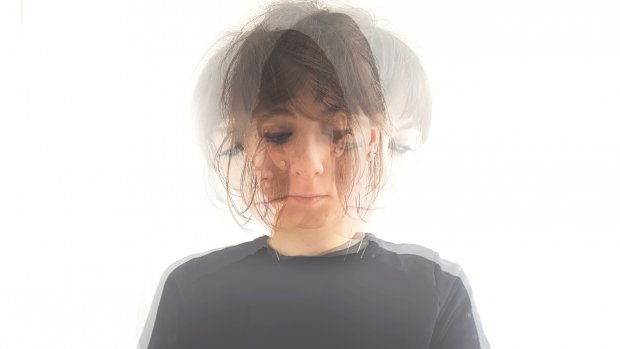
As part of our #afemalecomposerday campaign marking International Women's Day, we highlight the life and work of composer Emma Kate Matthews.
Emma-Kate Matthews- "I would like to think that it’s possible to be thought of as an interesting ‘composer’ regardless of gender."
An architect, artist, and musician; composer Emma-Kate Matthews specialises in experimental music, featuring both electronic and acoustic instruments.
We spoke to her about her work, and how she identifies as a composer.
What was your route into composing?
I’ve played instruments and had ideas about music for a long time, but it’s only recently that I’ve had the opportunity to realise some of these ideas through collaborations and residencies. During my architectural education, I started to develop a real fascination with ideas connecting sound and space and have since turned this fascination into a PhD project.
Before my research project started my work was always either musical or spatial, but now I’m really understanding the relationship between the two. Composition plays a key role in this understanding. My recent residency with the London Graduate Orchestra enabled me to musically test ideas with regard to the timbral potential of orchestral instruments in an acoustically rich environment.
Where do you get your inspiration from?
That’s a big question and the answer is always changing. At the moment I’m finding drawing to be a really helpful tool in working out compositional ideas; specifically in understanding and developing musical and spatial constructions. I also get a lot of inspiration from teaching and talking about ideas with students. It’s great to be surrounded by so many creative, curious and hungry brains!
Do you think the word composer adequately reflects you an artist? If not, what word does?
Yes, I think of a composer as someone who has the ability to compile and make sense of ideas, whether they be about music, or other things. I consider my work to be multidisciplinary and I don’t always find it helpful to think about distinctions between one practice and another. For instance my most recent collaboration for the performance of my piece “Device 002” (at the Sagrada Familia) required me to synthesise architectural and musical ideas simultaneously. I definitely think of this synthesis as ‘composition’ which I suppose in turn makes me a composer.
In your opinion, what does it mean to be a woman composer today?
I would like to think that we are moving towards a culture of not having to make a distinction between ‘composers’ and ‘female composers’ - and that opportunities for collaboration and development are becoming equally available to male and female composers alike. In line with that sentiment, I would like to add that being a composer today is both incredibly exciting and also challenging. There is often a conflicting pressure to both be highly original and also constantly reference your work back to the work of others. Whilst I think it’s important to understand context of your work, I also support innovation, originality and the case that sometimes ideas have a mind of their own and the work produces unexpected results. For me, the unknown is the exciting part!
tumblr lf6kyh0yno1qc80zi r1 from Emma Kate Matthews on Vimeo.
Emma-Kate Matthews' British Music Collection profile can be found here.